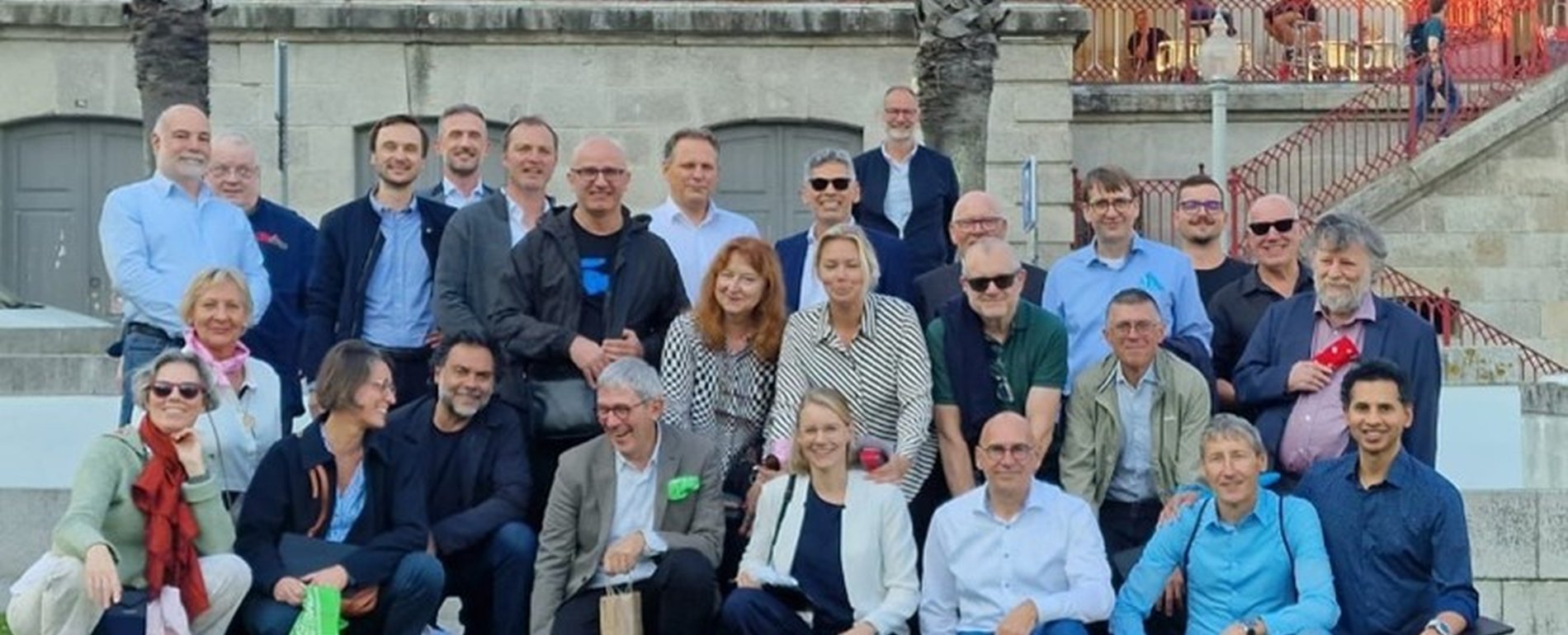3/25
Participation of the CIT in the RailData 30th Anniversary event and workshop on Rail Freight and IT

The CIT General Secretariat (GS) took part in the 30th Anniversary of RailData on 8th October 2025 in Porto. To mark the anniversary, a workshop dedicated to rail freight and IT developments was organised and moderated by Christophe Lemaire, Chief Digital Officer at Rail Logistics Europe (RLE, SNCF Group). The workshop provided an opportunity to review RailData's work since 1995 and to highlight the successful CIT - RailData cooperation, particularly in developing the electronic CIM consignment note.
I took part in a panel moderated by Mahesh Blatter (DB Cargo, RailData Chair), which included Harald Reisinger (RNE), André Benayoun (consultant), Petr Červinka (CD Cargo and RailData), Christophe Lemaine (RLE) and myself. The main focus of the discussion was on digitalisation in freight transport and the creation of new digital tools for the sector that comply with the current regulatory framework (European Data Act) and with future regulations (Capacity Regulation). The technical and IT-focused discussions examined future opportunities for the rail sector. The CIT GS briefly explained the support and assistance offered by our legal specialists and its work on the development of standardised, easy-to-use products (eLV CIM, CUV Wagon Note, well-adapted Checklists), guidelines (Consignment Note Manual GLV-CIM) and specific forms (CIT20 electronic formal report).
The CIT’s support is indeed crucial for its members as they navigate the new regulations that require the electronic transmission of data and documents. For example, the CIT acts as an expert within the DTLFII, helping to ensure the proper implementation of the eFTI regulation. The CIT also demonstrates dynamism through its work on the new regulation on international waste shipments and cross-border rail traffic, which requires rail carriers to implement digital, IT and legal adaptations (CIT Expert Group dedicated to waste shipments and specific transports). At the end of the workshop, the importance of the CIT’s work was highlighted during a networking session with several IT experts and representatives of freight terminals and railway undertakings.
The primary challenge for the CIT is to deliver legal support within a complex and constantly changing field that includes artificial intelligence, new regulatory requirements and evolving digital platforms. The CIT will therefore continue to focus its efforts on developing legal documentation that seamlessly interfaces with these digital tools and developments, thereby ensuring the efficiency of international freight transport.
